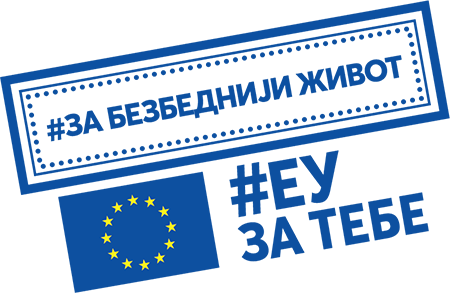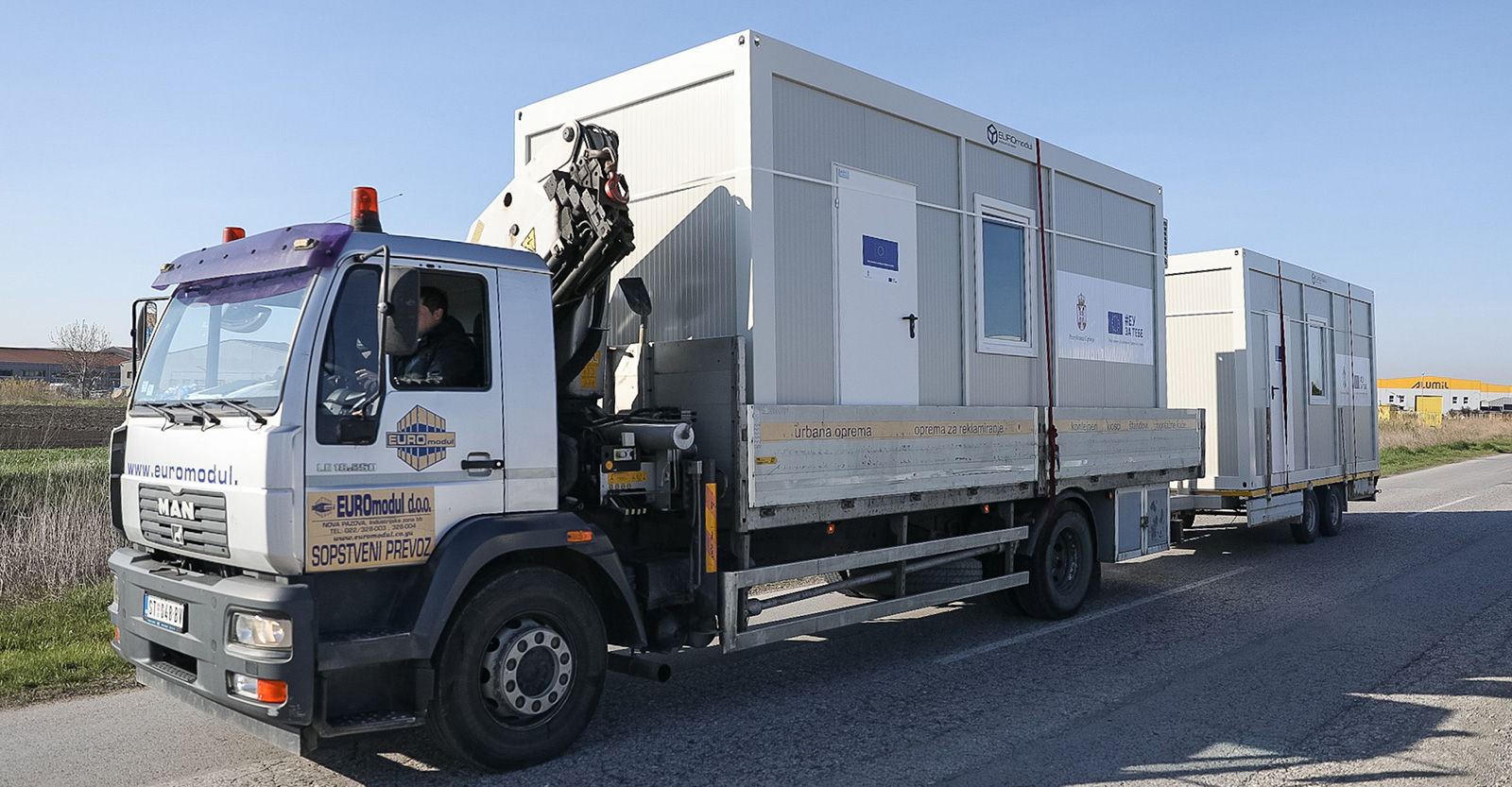News about the coronavirus spreading among hospital patients was among the most ominous headlines we could read in the past two years.
From the beginning of the pandemic until mid-February 2021, nearly 15 thousand people have died due to complications caused by COVID-19 in Serbia, despite all efforts made by physicians, nurses, and other medical staff who are trying to keep the healthcare system going.
The European Union immediately stepped in to help the medical workers of Serbia. So far, the EU has invested nearly 77 million euros for fighting coronavirus pandemic. Among other things, this includes procuring various medical items and devices such as respirators, ICU monitors, thermometers, protective masks, refrigerators and freezers for vaccine storage, 26 vehicles for vaccine transportation, 32 fully equipped ambulances.
Among these, triage and emergency medical care containers were particularly important, as they enabled the triage of patients and prevented the potentially infected people from entering healthcare institutions. The medical equipment for these containers was also procured, including examination tables, a desk with two chairs, contactless thermometers, as well as small bins for medical and infectious waste, and trash bins. Since the beginning of the vaccination campaign, these containers have also been used for vaccine administration.
“The readiness of our healthcare system to take on the challenge of the virus spread depends, above all, on the extent to which we managed to secure our hospitals, physicians, and other medical staff involved in the system of healthcare. Therefore, protecting them is crucial for the success of our fight against COVID-19. I am grateful to the European Union for its support as it has helped us to procure 100 triage containers, thus contributing to reducing the risk of virus spread and strengthening of our healthcare system to rise up to this challenge,” said Jadranka Joksimović, Minister of European Integration and national IPA coordinator.
As many as 140 of these containers can now be found in front of healthcare institutions across Serbia. Although the European Union has financed the production and furnishing of the containers, what’s worth mentioning is that they are made in Serbia.
In the front yard of the General Hospital in Pančevo, which also houses the local Institute of Public Health, there are three triage containers. Anticipating the end of the pandemic, we asked the Institute’s director, physician Ljiljana Lazić, what happens to containers once we “get rid” of coronavirus?
“Triage containers have been extremely helpful, and we will make good use of them once the pandemic is over. The Institute of Public Health Pančevo doesn’t have its own facility; we are headquartered in two locations. In one of those locations, we share the space with the Ophthalmology Clinic of the General Hospital. As we don’t have enough space for the Institute’s activities, it will be easy to put them to good use,” says the physician.
She seized the moment to share a story about these containers with us:
“When I found out that we would receive triage containers, I headed for the Institute from Belgrade. As I entered Pančevo, I saw a truck carrying the containers. I stopped the truck and asked the driver: Where are you going with my containers? It turned out that the driver was driving around looking for the Institute to deliver the containers but couldn’t find the building.”
PRE-PANDEMIC SUPPORT FOR THE HEALTHCARE SYSTEM
Over the past two decades, the EU has furnished hospitals, laboratories, institutes of public health, and blood transfusion centres, while it also procured a total of 284 fully equipped ambulances for healthcare centres across Serbia, 122 of which are equipped with respirators that have proven to be crucial in the fight against COVID-19.
Overall, the EU has supported the entire healthcare network in Serbia: through the European Investment Bank (the European Bank), 250 million euros were set aside to reconstruct or build 20 large hospitals across Serbia, including the Torlak Institute, and four university clinical centres in Belgrade, Niš, Novi Sad, and Kragujevac, all of which have played a crucial role in fighting coronavirus.



